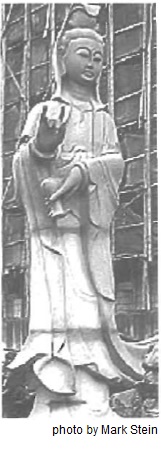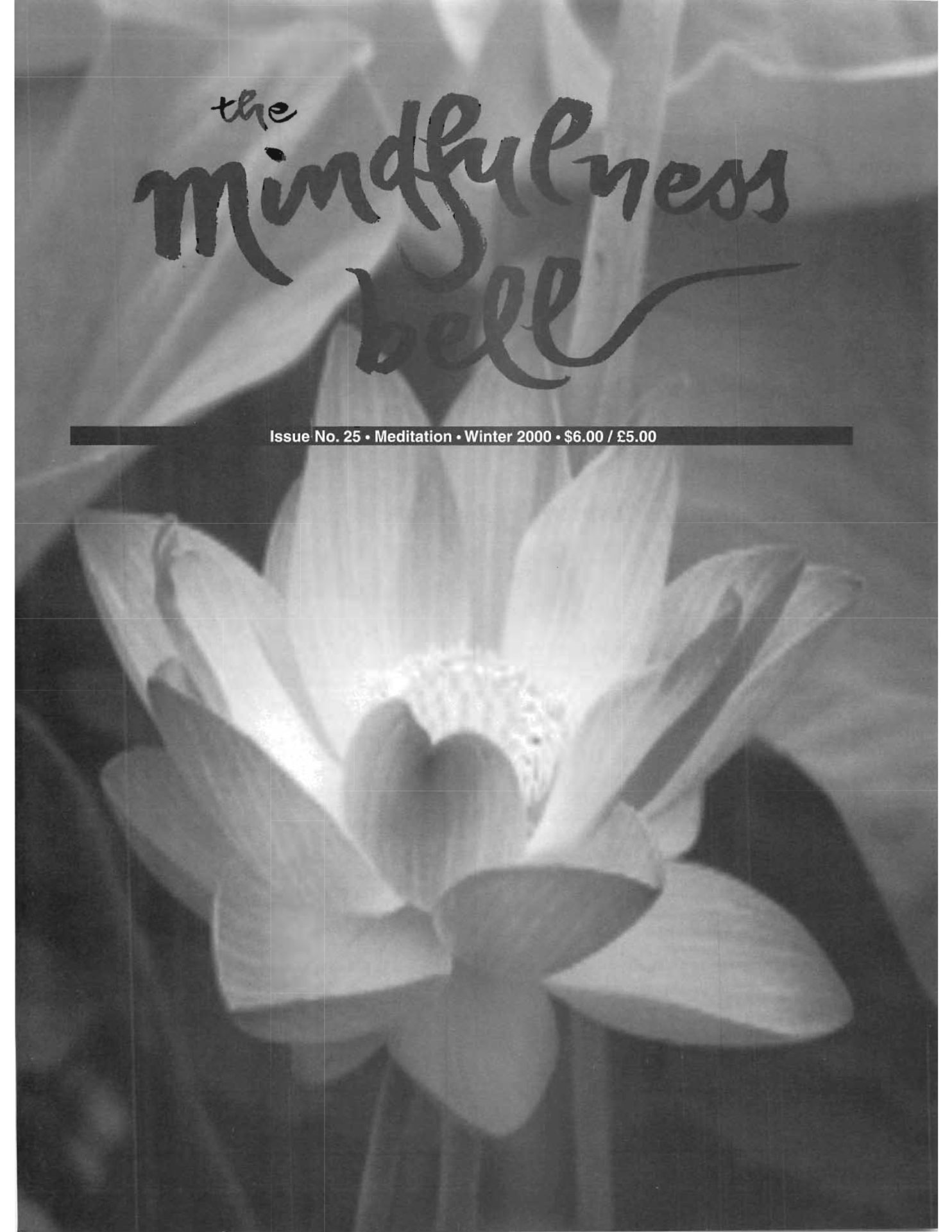By Samuel DuBois & the Mountain View Correctional Facility Sangha
Prisons are often compared to monasteries—one is given limited choices, allowed few personal possessions, subject to rigid schedules, offered bland food, and required to work, but with time to meditate, walk, and study. Inmates often laugh at this analogy. Our environment is more like a loud, rowdy, gambling parlor, whorehouse, and TV bar—an abusive, intrusive, hostile program teaching hate, violence, and mistrust;
By Samuel DuBois & the Mountain View Correctional Facility Sangha
Prisons are often compared to monasteries—one is given limited choices, allowed few personal possessions, subject to rigid schedules, offered bland food, and required to work, but with time to meditate, walk, and study. Inmates often laugh at this analogy. Our environment is more like a loud, rowdy, gambling parlor, whorehouse, and TV bar—an abusive, intrusive, hostile program teaching hate, violence, and mistrust; a competitive combat event with much yelling and pain. Perhaps there are elements of both scenarios in prison. Either way, prison can be a clear bell of mindfulness. With Buddhist teaching, demonstration, and Sangha encouragement, prisons could be powerful practice centers. To be sure, prisons are full of relentless teachers. But the probability is slim that, without intervention, prisons will become the houses of healing that they need to and could so easily become.

Here in Mountain View, we strive to create a "buddhaverse," as described by Robert Thurman in Inner Revolution (Riverhead Books 1998). A buddhaverse is an environment (universe) where we train our mindfulness and other factors of awakening—investigating Dharmas, energy, joy, ease, concentration, and letting go—and where we engage in activities directed toward practicing understanding and developing enlightenment. If we could create buddhaverse prisons, how wonderful it would be for our society and for the many inmates who acknowledge that they have caused much suffering in themselves and others, and who sincerely wish to change. Interestingly, the current political climate in the United States may be ripe for this ideal.
With Presidential candidate Governor George Bush pushing to funnel monies into "faith-based prisons," Buddhists in America may be in a position to fill a very real need.This undertaking would involve a lot of work, time, problems, red tape, and responsibility. A buddhaverse prison is possible, however, if we are willing to invest, plan, support, and/or work there. Imagine an open-to-the public, education, training, practice and retreat center with prisoners and other residents. One that incorporates subsistence gardening, baking, aesthetic grounds, ecological awareness, and cottage industries. Perhaps such a prison could even become a public temple or retreat center in fifteen or twenty years.
Our national Sanghas are full of people with experience and practice that could mean a lifetime of difference to inmates in a buddhaverse prison and would have an immeasurable positive effect on the lives that the inmates touch, during and after their incarceration. Prisoners who choose to participate would be clearly informed of the objectives, expectations, and schedules. They would be interviewed and advised that noncooperation will result in their return to state facilities. The programs could involve a number of stages, beginning with three to six months in close groups for training and intensive practice, and progressing into more open activities requiring more individual responsibility. In the process, inmates could construct and maintain much of the facilities and programs. If the program is well planned, carefully recruited, and managed properly, there should be few, if any, serious problems. Of course, there are a lot of ifs and many questions, including those regarding security. How would we deal with fences, pepper spray, and locks? But we must understand that our country's prison system is a failure. We can see clearly the many negative results. We should look deeply and honestly at the short and long-term possibilities of a buddhaverse prison.
We invite others to investigate this vision with us. Perhaps together we can build a realistic model. Please share your opinions, questions, and suggestions. Prisoners, please write our local Sangha contact, Pat Tompkins, RR1, Box 140D, Bakersville, NC 28705. Others, please write Samuel DuBois, DOC# 0112717, P.O. Box 629, Spruce Pine, NC 28777.
Samuel DuBois, Courageous Understanding of the Source, is an inmate in Mountain View Correctional Facility in Spruce Pine, North Carolina, which is run by a private company on behalf of the state. Its management and programs are similar to those of state-run prisons. Their Sangha is able to meet five times each month.

